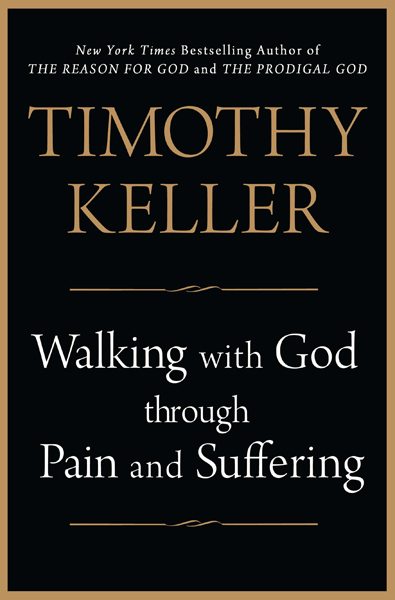Forgive me, but I’m always a bit skeptical about the latest book on suffering and God. I’m not a cynic or a disparager; it’s just the subject has so consumed me for the last 46 years of quadriplegia, that everything I read makes me wonder, Is there anything new or explained differently about affliction and the Almighty that can help—I mean really help—me through my suffering?
Yes, I’m a seasoned Christian who has memorized practically every Bible verse on how to overcome pain and trust God. But still my faith wobbles when I’m laid claustrophobically flat, paralyzed in bed with a lung infection. Or when I watch a young mother weep at the hospital bedside her dying child. Or when a 30-year-old disabled Marine gets warehoused in a nursing home because his wife can’t stand the heat. And my faith really shudders when in some corner of the world, a lock on a chicken shed opens and there lies a child with cerebral palsy, thirsty and hungry.
Where are the answers to such horrendous and seemingly senseless suffering? Through the decades, I have learned that when you’re hemorrhaging human pain, answers—even if they are good, right, and true—can sting like salt in a wound. When you are decimated and down for the count, the “16 good biblical reasons why all this is happening” can come across as cold and calloused. Answers are good when you’re asking “Why?” with an open heart, but they can do damage when you’re asking “Why?” with a clenched fist.

Walking with God through Pain and Suffering
Timothy Keller
And so, when I pick up a hefty manuscript written by a popular pastor/theologian—even if it is Timothy Keller—I muse, Will these pages actually reach people where they hurt—in the gut and in the heart?
Well, Walking with God through Pain and Suffering comes pretty close. I hate to sound trite, but it has something for everyone—something for the agnostic (Keller makes a strong argument that there are no true atheists); something for the philosopher (although he invites the wounded reader to skip that section); and something for the believer being beckoned into the inner sanctum of sharing in the fellowship of Christ’s sufferings (a place no one naturally wants to go).
Is it possible? Can Keller’s latest—and some have said his most significant—work accomplish all this? Is he actually saying something new under the sun?
I will tell you what is new: it is the way he has left no theological, philosophical, or personal stone unturned. The book is incredibly well researched, weaving timeless scriptures between salient observations of everyone from Camus to New York Times columnists. Yet it is impossibly personal—you can tell he’s a pastor. Keller has a way of taking the walking wounded by the hand and gently placing it in the Savior’s.
Walking with God through Pain and Suffering may be the most comprehensive contemporary book on the subject. And for me, that’s saying something. I’ve even ordered copies for a few friends who gag when they hear the God of the Bible is not embarrassed to say he’s sovereign over suffering. That’s what irks them: that sticky, inconvenient propensity of God to tuck everything under his overarching decrees without explaining why (or getting himself dirty). That’s what drives them crazy.
It drives us Christians crazy, too. Admit it: like pickles in a jar, our minds are soaked with all sorts of secular subtleties. We are infected by our culture of comfort and convenience, and would rather erase suffering out of the biblical dictionary. We want a God who supports our plans, who is our “accomplice”; someone to whom we can relate as long as he is doing what we want. If he does something else, we “unfriend” him.
So, yes, perhaps we do need another book on suffering and God, if for no other reason than to wake us up out of our spiritual slumber and get us thinking rightly about the character and compassion of God in these dark, difficult times. Yes, suffering is a mystery, but it is not a mystery without at least some explanation. Besides, life may be hard, but God is good—much more so than we can possibly imagine. And he stands ready to give, well, perhaps not the answers the world would like, but to give the One who holds all the answers in his hand.
Tim Keller does a righteous job of showcasing to us, and to the world, that Jesus is worth trusting. Period. End of argument. After all, when they hang you on a cross like meat on a hook, you have the final word on suffering.
And so to revisit my own musing, is there anything new about affliction to be learned? For the reader who loves to delve into the great mysteries, yes, there is light to reveal secrets to acceptance and contentment. Perhaps within the rich pages of Walking with God through Pain and Suffering, your own path will be illumined.




































